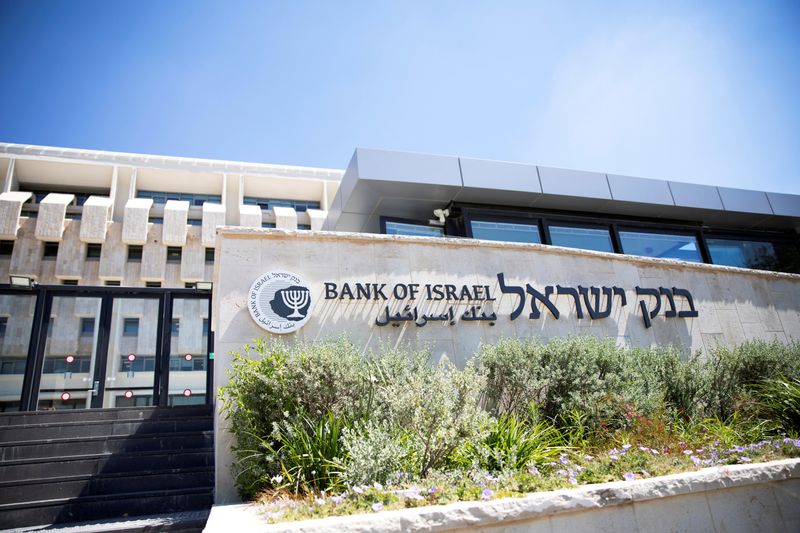Israeli finance panel chief suggests law to shield mortgages from rate hikes
2022.11.28 09:42

© Reuters. FILE PHOTO: The Bank of Israel building is seen in Jerusalem June 16, 2020. REUTERS/Ronen Zvulun/File Photo
By Steven Scheer
JERUSALEM (Reuters) – The head of the Israeli parliament’s powerful finance committee on Monday criticized a wave of central bank interest hikes and said he would propose legislation to minimise their impact on mortgage holders.
In a bid to fight rising inflation, the Bank of Israel last week raised its benchmark interest rate by a half-point to an 11-year high of 3.25%. It was the sixth increase in an aggressive monetary tightening cycle that has taken the rate from 0.1% in April.
With mortgages in Israel linked to both inflation and interest rates, such loans have soared more than 1,000 shekels ($290) a month in many cases and added to the country’s already high cost of living.
Moshe Gafni, who returned to the post of chairman of parliament’s finance committee after a strong showing by his ultra-Orthodox party in an election this month, said he had asked the panel’s legal adviser to draft a bill that exempts mortgages from Bank of Israel interest rate increases.
He said such a law would help the lower and middle classes.
There was no immediate reaction from private banks.
Gafni said his committee, which controls the government’s purse strings, would not interfere in monetary policy decisions by Israel’s independent central bank.
However, when citing a wave of price increases on consumer goods, he said: “As someone who oversees the government, and the various authorities, our job is to check the consequences of what is happening.”
Speaking to the committee, Bank of Israel Governor Amir Yaron defended the rate hikes, pointing to an inflation rate of 5.1%. “We are aware of the pain,” he said. But if inflation is not eradicated now, he warned, it would lead to spiralling costs.
Deputy Bank of Israel Governor Andrew Abir told Reuters last week that the benchmark rate would probably exceed 3.5%, meaning at least one or two more rises are likely in early 2023.
($1 = 3.4392 shekels)








